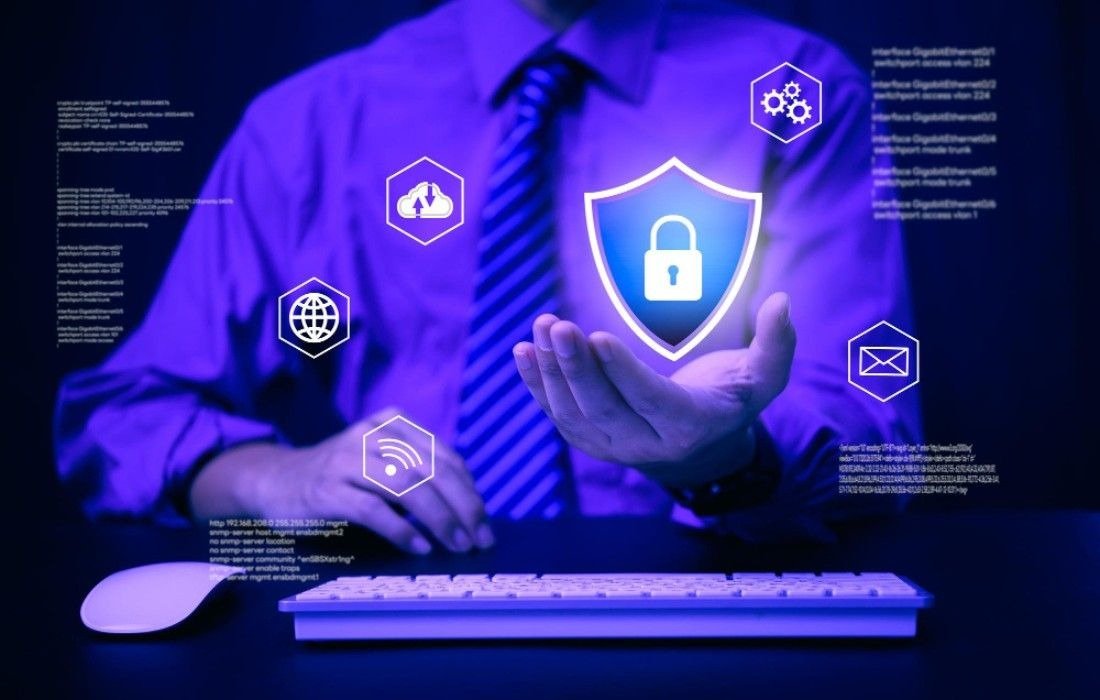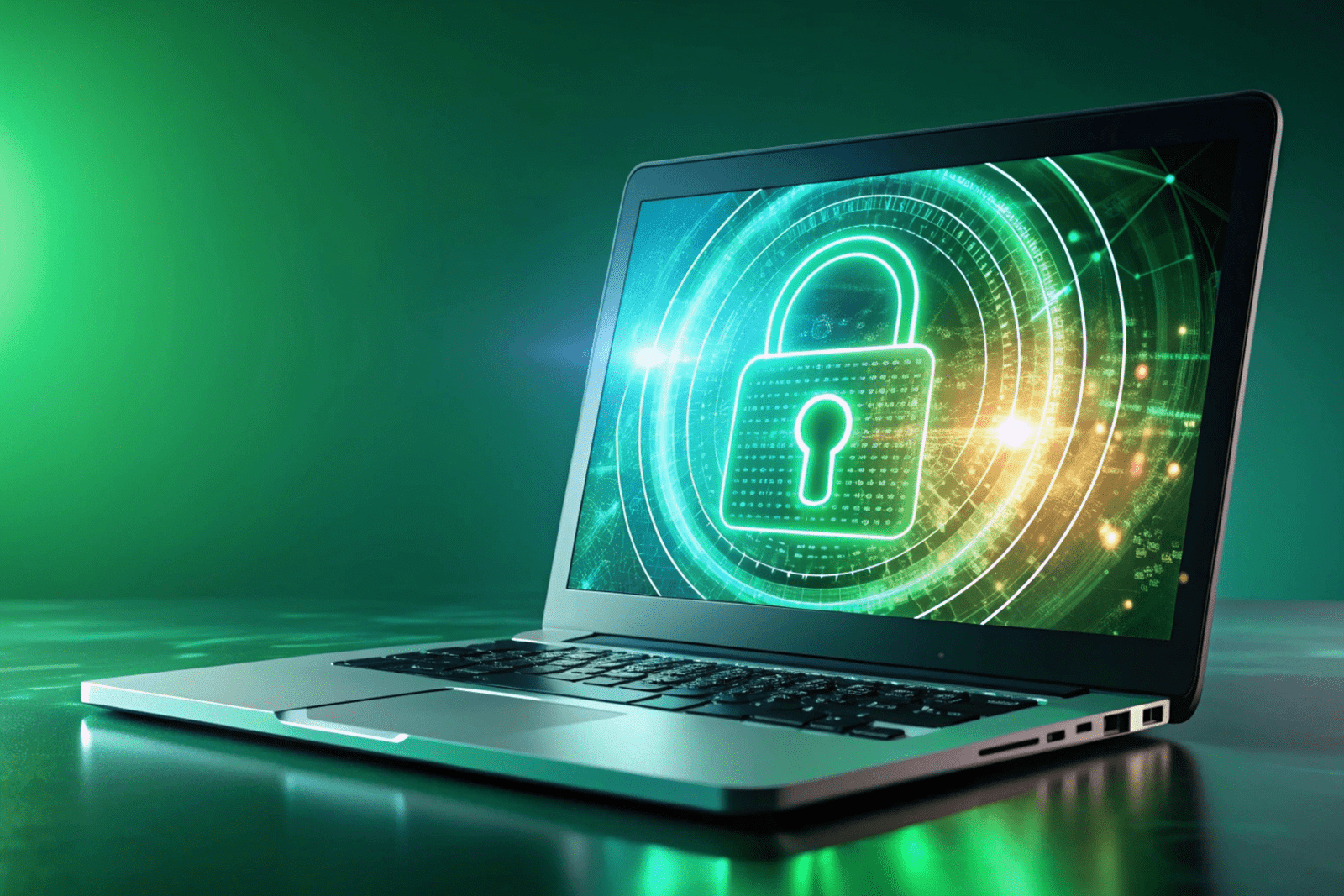Maintaining strong cybersecurity measures has become more important than ever, given the development of remote work. Employees are more exposed to different cyber dangers as they run outside the regulated surroundings of an office. Not only does cybersecurity for remote employees affect IT departments, but every remote employee has obligations in this regard. Key cybersecurity tips for remote employees to safeguard their companies and themselves will be included in this article.
1. Use a Secure Network Connection
Using unprotected networks is one of the biggest dangers remote employees face. Often unprotected, public Wi-Fi networks—found in libraries, coffee shops, or airports—are simple targets for hackers. By intercepting information sent across these networks, hackers might cause data leaks or illegal access to business systems.
Tip: Work remotely always using a Virtual Private Network (VPN). Because a VPN encrypts your internet connection, hackers will find it impossible to access your data. Make sure the VPN you now use is dependable and trustworthy. Furthermore, whenever feasible, avoid connecting to public Wi-Fi networks, especially while managing private data.
2. Implement Strong Password Practices
One often used point of access for cybercrime is weak passwords. The need for good password habits cannot be emphasized, given the growing usage of digital channels for remote work.
Tip: Use complicated passwords using uppercase and lowercase letters, numbers, and special characters combining elements. Steer clear of using readily guessed knowledge like your name, birthdate, or common words. To create and keep original passwords for every account safely, think about utilizing a password manager. Change your passwords often; try not to reuse them on several devices.
3. Enable Two-Factor Authentication (2FA)
Before allowing access to an account, two-factor authentication demands two different kinds of identity, therefore adding an additional degree of protection. 2FA stops unwanted access even if a cybercriminal gets your password.
Tip: Turn on 2FA on every account—especially those with important or business-related data. Common 2FA techniques are biometric verification—fingerprint or face recognition—or SMS-based codes and authentication apps. This extra action greatly lowers the possibility of illegal access.
4. Regularly Update Software and Systems
Older systems and programs are more likely to have security flaws. Usually using these weaknesses, cybercriminals can access your data and gadgets.
Tip: Update your operating system, software programs, and antivirus tools often. Where at least automated updates are possible, make sure you always have the most recent security patches. This habit guards your gadgets from recently identified hazards.
5. Be Wary of Phishing Attacks
Cybercriminals often use phishing attacks—a common tactic—to fool people into divulging sensitive data, such as login passwords or bank information. Usually, these attacks show up as false emails or communications that seem to be from reputable sources.
Tip: Open emails or texts from unidentified sender carefully. Unless you are positive attachments are safe, avoid clicking on links or downloading anything. Search for red signals include hurried language, spelling mistakes, or general greetings. In case of uncertainty, confirm the validity of the correspondence by means of a reliable channel of contact with the sender.
6. Secure Your Devices
Many times, remote work entails using personal devices such as tablets, computers, or cell phones. These devices are open to attacks since they might not have the same degree of security as those your company offers.
Tip: To guard your gadgets, use biometric authentication or strong passwords. Turn on encryption to guard your information should you misplace or steal your smartphone. Install antivirus software, then routinely search your devices for viruses. Furthermore, avoid using public or shared tools for duties connected to your job.
7. Be Mindful of Physical Security
Physical security is just as crucial, even if cybersecurity mostly addresses the safeguarding of digital data. Unauthorized users of your equipment might cause major security lapses.
Tip: Even if it’s only for a little period, lock your screen when you move away from your smartphone. Store your electronics in a safe place when not in use, particularly in public areas or on trips. Think about keeping others from seeing your screen by employing privacy screens.
8. Back Up Your Data Regularly
Hardware failures, cyberattacks, or inadvertent deletion are just a few of the several causes of data lost. Frequent data backups guarantee your ability to restore your data should a loss occur.
Tip: Set up a consistent backup plan for data connected to your employment. Stow backups safely using external hard drives or online storage options. Verify that backups are encrypted to guard against unwanted access. Test your backup system often to be sure you can recover your data as needed.
9. Understand and Follow Company Policies
Most companies have certain cybersecurity policies and rules to which staff members are supposed to abide. These policies are meant to guard the company and its staff against online hazards.
Tip: Try to become familiar with and follow your company’s cybersecurity rules. This covers following data security standards, utilizing certified tools and software, and reporting any unusual activity or security events. Ask your IT department for an explanation if you are unsure about any element of the policy.
10. Stay Informed and Educated
In an always-changing sector, cybersecurity is seeing constant new weaknesses and attacks. Maintaining a safe remote work environment depends on keeping updated about the newest cybersecurity trends and best practices.
Tip: Take advantage of the cybersecurity training courses your company provides. Keep current on the most recent advancements in cybersecurity. Participate in web communities or forums covering cybersecurity subjects. You will be more suited to defend your company and yourself against cyberattacks if you are more knowledgeable.
Conclusion
Particularly in the remote work context, cybersecurity falls on everyone. These pointers can help you greatly lower your chances of becoming a victim of cyberattacks. Recall that cybersecurity goes beyond simply data protection to include safeguarding the general security, financial situation, and reputation of your company. Remain alert, keep educated, and give cybersecurity top attention in your regular job schedule.
Also Read: Tech Innovations Improving Healthcare Accessibility











